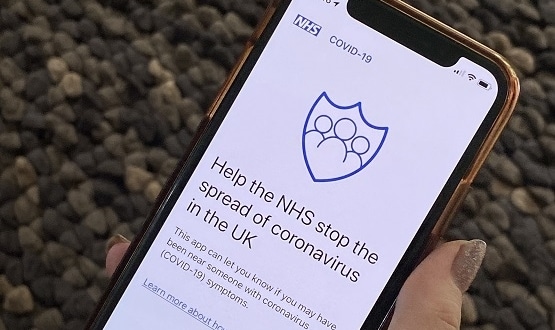Hancock refuses to provide roll-out date for contact-tracing app
- 22 July 2020

Health secretary Matt Hancock has refused to provide a roll-out date for the NHS contact-tracing app during a parliamentary committee meeting.
When questioned on the progress of the app during a science and technology committee meeting on Tuesday, Hancock said it would be rolled-out “as soon as an effective one is available”.
It has been one month since the government abandoned its contact-tracing app in favour of Apple and Google’s technology following months of criticism over its decision to develop a centralised system.
“What I wasn’t willing to do was put an app that we knew, through rigorous testing, didn’t work on half the phones of the country,” Hancock told the committee.
“I could have not done the testing, and not done the rigorous piloting, and because it worked perfectly well on Android devices we could have assumed it would therefore work on all devices.
“We didn’t do that. We tested rigorously, we found some challenges and I pay tribute to the app team who did an incredible job in bringing it to development and are now working very closely with other companies to come up with a proposition that will work effectively.”
A pilot on the Isle of Wight in May, alongside further field tests, revealed issues with both the NHS app and Apple and Google’s technology.
The NHS version was able to register about 75% of nearby Android devices, but just 4% of iPhones. The Apple and Google model was more accurate, logging 99% of Android devices and iPhones, but had difficulty measuring the distance between users’ devices.
This led to the NHS Test and Trace System being launched on 28 May without the app, despite it being touted a key digital element of the system.
When asked if he agreed an effective Test and Trace System needs an app, Hancock said an app was “not necessary”.
“The challenges around developing an app that works effectively and works within the parameters that are set by some of the phone manufacturers are well documented,” he said.
“Having a piece of technology that helps with contract-tracing would help, but it is not necessary to do contact-tracing because we are able to do contact- tracing through all sorts of other technologies too.”
It was first revealed the NHS was working on a contact-tracing app in March, with both Hancock and NHSX chief, Matthew Gould, stating they expected it to be rolled-out by mid-May.
Prime Minister Boris Johnson then told parliament the UK would have a “world-beating” tracing system in place by June, which was expected to include the app.
After initially differing from Apple and Google’s decentralised approach, the government abandoned its centralised contact-tracing model in mid-June in favour of the tech giants’ model.
You can read more about the timeline of the app here.




